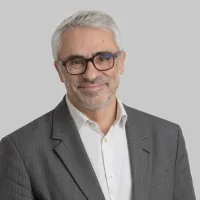Fighting Illicit Financial Flows: Tax Inspectors Without Borders, a concrete initiative
09 July, 2024
Following the global financial crisis in 2008, unprecedented progress has been made in tax cooperation. Bank secrecy was ended, and tax administrations now routinely exchange information on individuals as well as companies. Still, tax avoidance from large multinational companies in Africa remains a serious issue with huge amounts of money at stake. Part of the issue relates to the fact that tax rules are outdated, as is the case with traditional transfer pricing rules. The international community has started fixing them, including through a global minimum tax of 15%, but more needs to be done.
Beyond the policy issue, developing countries often lack capacities to properly enforced current rules. Audit capacities, particularly for international transactions are limited, giving ground to increased illicit financial flows risks.
A very simple idea…
Against that background, Tax Inspectors Without Borders (TIWB), an initiative launched 10 years ago, could be seen as a poster child of a practical and effective response to concretely help African countries. The philosophy of this initiative, jointly run by UNDP and the OECD, is very simple: seconding skilled tax inspectors to assist local teams to perform international tax audits.
A country identifies a company it wishes to audit but has limited capacities to do so and does not want its tax inspectors to face armies of highly trained lawyers in an unequal conversation. The country can ask TIWB to supply a seasoned tax inspector, specialised in the activity sector of the company. The TIWB secretariat will find a skilled tax inspector and will deploy him/her in the country, the time of the audit. There is no substitution as there must be a local team. Rather, there is a transfer of knowledge and know-how by 'learning in doing' type of experience.
…with amazing results
Since 2015, the initiative has resulted in almost $4.5 billion of tax adjustments and the effective collection of over $2.3 billion ($1.82 billion in tax revenues in Africa) in additional tax revenues across 62 jurisdictions. Given the low cost of initiative (a light secretariat and volunteering tax inspectors) the return of investment is of $100 recovered for every dollar spent.
Beyond revenue generation, TIWB's efforts strengthen capacities of developing countries for the long term. They have significantly contributed to domestic resource mobilisation in developing countries, as part of the Sustainable Development Goals (SDGs), but also to fighting Illicit Financial Flows. There are even some deployments related to tax crimes, which have proved successful, as well as South-South deployments with Indian or Kenyan tax inspectors being deployed in some countries. TIWB is a perfect illustration that IFFs are not a one-way street and must be tackled at both ends of the chain.
More to come?
Drawing on this experience, it may be worth exploring whether other 'down-to-earth' initiatives of this kind could be engineered and implemented to fight IFFs, a disease which harms the economic potential of Africa. In conclusion, when addressing the question of 'Assessing and unlocking Africa's own financial resources' TIWB initiative emerges as a key instrument. It has proven to be an invaluable tool for developing countries, particularly in Africa, in their efforts to enhance tax systems, increase revenues, and combat IFFs.
The success achieved highlights the initiative's potential to continue supporting beneficiary countries in reaching their development objectives and effectively mobilising their domestic resources. This initiative stands as a model of innovative and successful international cooperation.



